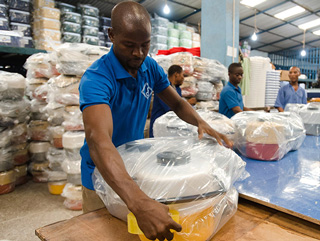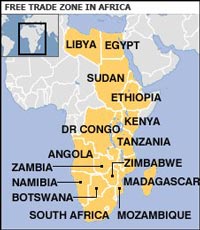
African Continental Free Trade Area could boost continent’s income by US$450 billion, study finds

If implemented fully, the African Continental Free Trade Area (AfCFTA) trade pact could boost regional income by 7% or US$450 billion, speed up wage growth for women, and lift 30 million people out of extreme poverty by 2035, a new World Bank report has found.
The report suggests that achieving these gains will be particularly important given the economic damage caused by the COVID-19 pandemic, which is expected to cause up to US$79 billion in output losses in Africa in 2020.
The pandemic has already caused major disruptions to trade across the continent, including in critical goods such as medical supplies and food.
Most of AfCFTA’s income gains are likely to come from measures that cut red tape and simplify customs procedures.
Tariff liberalization accompanied by a reduction in non-tariff barriers such as quotas and rules of origin would boost income by 2.4%, or about US$153 billion. The remainder US$292 billion would come from trade-facilitation measures that reduce red tape, lower compliance costs for businesses engaged in trade, and make it easier for African businesses to integrate into global supply chains.
“The African Continental Free Trade Area has the potential to increase employment opportunities and incomes, helping to expand opportunities for all Africans,” said Albert Zeufack, the World Bank’s Chief Economist for Africa.
“The AfCFTA is expected to lift around 68 million people out of moderate poverty and make African countries more competitive. But successful implementation will be key, including careful monitoring of impacts on all workers –women and men, skilled and unskilled—across all countries and sectors, ensuring the agreement’s full benefit,” he concluded.












































